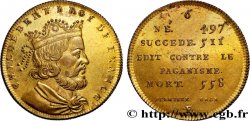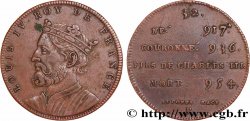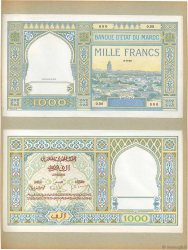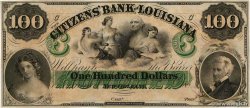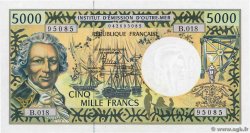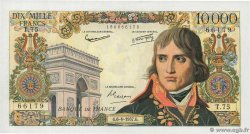fjt_743486 - SÉRIE MÉTALLIQUE DES ROIS DE FRANCE Règne de PHILIPPE V - 48 - Émission de Louis XVIII n.d.
40.00 €
Menge
In den Warenkorb

Type : Règne de PHILIPPE V - 48 - Émission de Louis XVIII
Datum: n.d.
Metall : Kupfer
Durchmesser : 32 mm
Stempelstellung : 12 h.
Gewicht : 12,44 g.
Rand cannelée
Seltenheitsgrad : R2
Kommentare zum Erhaltungszustand:
Patine mate et tranche percée à 12h pour une ancienne monture
Pedigree :
Exemplaire provenant de la Collection MARINECHE
Vorderseite
Titulatur der Vorderseite PHILIPPE V ROY DE FRANCE.
Beschreibung Vorderseite Buste imaginaire couronné et drapé à gauche.
Rückseite
Titulatur der Rückseite 48. - NÉ. 1293. - SACRÉ. 1317. - SUCCESSION DES MÂLES EN LIGNE COLLATERALE. - MORT. 1322. - TROISIEME RACE. / F..
Beschreibung Rückseite en neuf lignes.
Kommentare
Philippe V de France, dit Philippe le Long, né vers 1292/1293, mort le 3 janvier 1322 à Longchamp (Paris), fut régent de France (juin 1316-janvier 1317) puis roi de France de 1317 à 1322, le quatorzième de la dynastie dite des Capétiens directs. Il fut aussi roi de Navarre sous le nom de Philippe II de Navarre.
Il eut comme surnom « le long », en raison de sa grande taille.
Il est le second fils du roi Philippe IV le Bel et de la reine Jeanne Ire de Navarre. Son père lui donne en apanage le comté de Poitiers et le marie à Jeanne de Bourgogne, héritière du comté de Bourgogne. Cette union peut l'amener à briguer la dignité impériale.
Prince rusé, le prince Philippe va mettre toute son énergie à assurer l'avenir de sa descendance. C'est ainsi qu'en échange de son soutien contre les féodaux révoltés, il obtient de son frère Louis X la révocation du testament de son père concernant le rattachement au domaine royal de la Franche-Comté dont son épouse Jeanne II de Bourgogne est usufruitière. Dans son testament, Philippe le Bel avait stipulé qu'en l'absence de descendance mâle du prince Philippe, la Franche-Comté serait intégrée au royaume comme Philippe II Auguste en institué l'usage. Mais bien que n'ayant pas de descendance mâle le prince Philippe devait doter ses filles s'il voulait les marier dignement.
Le Parlement se prononce sur les dernières volontés de Philippe le Bel concernant la Franche-Comté, et le prince Philippe obtient que son épouse entre dans son héritage, alors que Philippe le Bel avait désintéressé Othon IV de Bourgogne afin d'acquérir la Franche-Comté.
Pour la suite de la biographie, voir http://fr.wikipedia.org/wiki/Philippe_V_de_France.
Philip V of France, known as Philip the Long, born around 1292/1293, died on January 3, 1322 in Longchamp (Paris), was regent of France (June 1316-January 1317) then king of France from 1317 to 1322, the fourteenth of the dynasty known as the direct Capetians. He was also King of Navarre under the name of Philip II of Navarre.
He was nicknamed \\\"the long one\\\" because of his great size..
He is the second son of King Philip IV the Fair and Queen Joanna I of Navarre.. His father gave him the county of Poitiers as an appanage and married him to Joan of Burgundy, heiress of the county of Burgundy.. This union may lead him to seek imperial dignity.
A cunning prince, Prince Philip will put all his energy into ensuring the future of his descendants.. Thus, in exchange for his support against the rebellious feudal lords, he obtained from his brother Louis X the revocation of his father's will concerning the attachment to the royal domain of Franche-Comté of which his wife Jeanne II of Burgundy was usufructuary.. In his will, Philip the Fair had stipulated that in the absence of male descendants from Prince Philip, Franche-Comté would be integrated into the kingdom as Philip II Augustus had established the custom.. But although he had no male descendants, Prince Philip had to provide his daughters with a dowry if he wanted them to marry off worthily..
Parliament decides on the last wishes of Philip the Fair concerning Franche-Comté, and Prince Philip obtains that his wife enters his inheritance, whereas Philip the Fair had paid off Otto IV of Burgundy in order to acquire Franche-Comté..
For the rest of the biography, see http://fr. Wikipedia. org/wiki/Philippe_V_de_France
Il eut comme surnom « le long », en raison de sa grande taille.
Il est le second fils du roi Philippe IV le Bel et de la reine Jeanne Ire de Navarre. Son père lui donne en apanage le comté de Poitiers et le marie à Jeanne de Bourgogne, héritière du comté de Bourgogne. Cette union peut l'amener à briguer la dignité impériale.
Prince rusé, le prince Philippe va mettre toute son énergie à assurer l'avenir de sa descendance. C'est ainsi qu'en échange de son soutien contre les féodaux révoltés, il obtient de son frère Louis X la révocation du testament de son père concernant le rattachement au domaine royal de la Franche-Comté dont son épouse Jeanne II de Bourgogne est usufruitière. Dans son testament, Philippe le Bel avait stipulé qu'en l'absence de descendance mâle du prince Philippe, la Franche-Comté serait intégrée au royaume comme Philippe II Auguste en institué l'usage. Mais bien que n'ayant pas de descendance mâle le prince Philippe devait doter ses filles s'il voulait les marier dignement.
Le Parlement se prononce sur les dernières volontés de Philippe le Bel concernant la Franche-Comté, et le prince Philippe obtient que son épouse entre dans son héritage, alors que Philippe le Bel avait désintéressé Othon IV de Bourgogne afin d'acquérir la Franche-Comté.
Pour la suite de la biographie, voir http://fr.wikipedia.org/wiki/Philippe_V_de_France.
Philip V of France, known as Philip the Long, born around 1292/1293, died on January 3, 1322 in Longchamp (Paris), was regent of France (June 1316-January 1317) then king of France from 1317 to 1322, the fourteenth of the dynasty known as the direct Capetians. He was also King of Navarre under the name of Philip II of Navarre.
He was nicknamed \\\"the long one\\\" because of his great size..
He is the second son of King Philip IV the Fair and Queen Joanna I of Navarre.. His father gave him the county of Poitiers as an appanage and married him to Joan of Burgundy, heiress of the county of Burgundy.. This union may lead him to seek imperial dignity.
A cunning prince, Prince Philip will put all his energy into ensuring the future of his descendants.. Thus, in exchange for his support against the rebellious feudal lords, he obtained from his brother Louis X the revocation of his father's will concerning the attachment to the royal domain of Franche-Comté of which his wife Jeanne II of Burgundy was usufructuary.. In his will, Philip the Fair had stipulated that in the absence of male descendants from Prince Philip, Franche-Comté would be integrated into the kingdom as Philip II Augustus had established the custom.. But although he had no male descendants, Prince Philip had to provide his daughters with a dowry if he wanted them to marry off worthily..
Parliament decides on the last wishes of Philip the Fair concerning Franche-Comté, and Prince Philip obtains that his wife enters his inheritance, whereas Philip the Fair had paid off Otto IV of Burgundy in order to acquire Franche-Comté..
For the rest of the biography, see http://fr. Wikipedia. org/wiki/Philippe_V_de_France







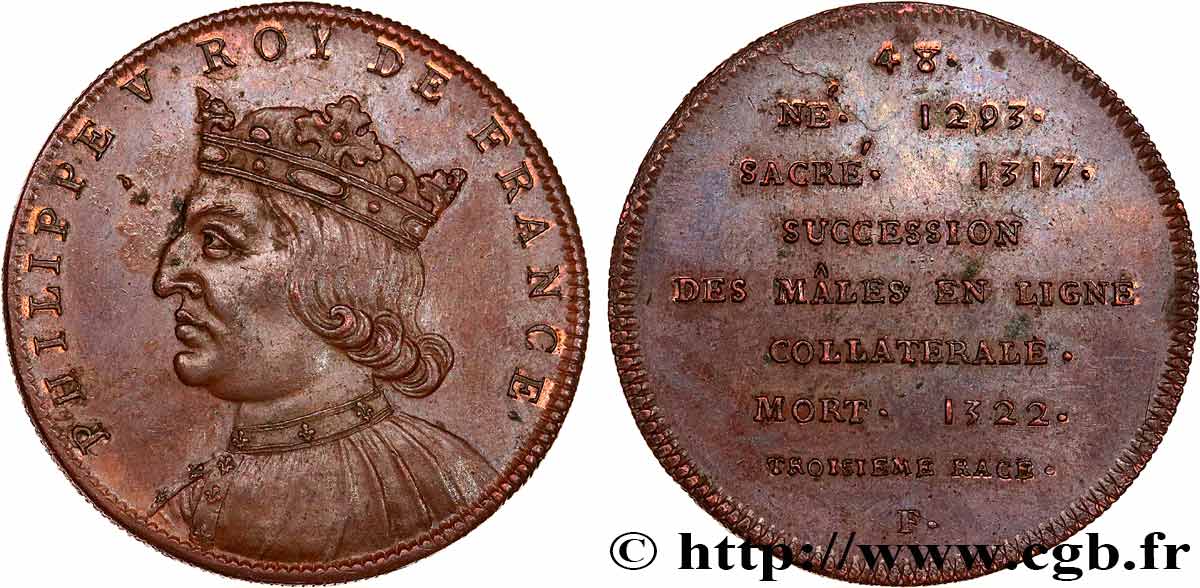
 Berichten über einen Fehler
Berichten über einen Fehler Die Seite drucken
Die Seite drucken Teilen meiner Auswahl
Teilen meiner Auswahl Stellen Sie eine Frage
Stellen Sie eine Frage Einlieferung/Verkauf
Einlieferung/Verkauf
 Details
Details
